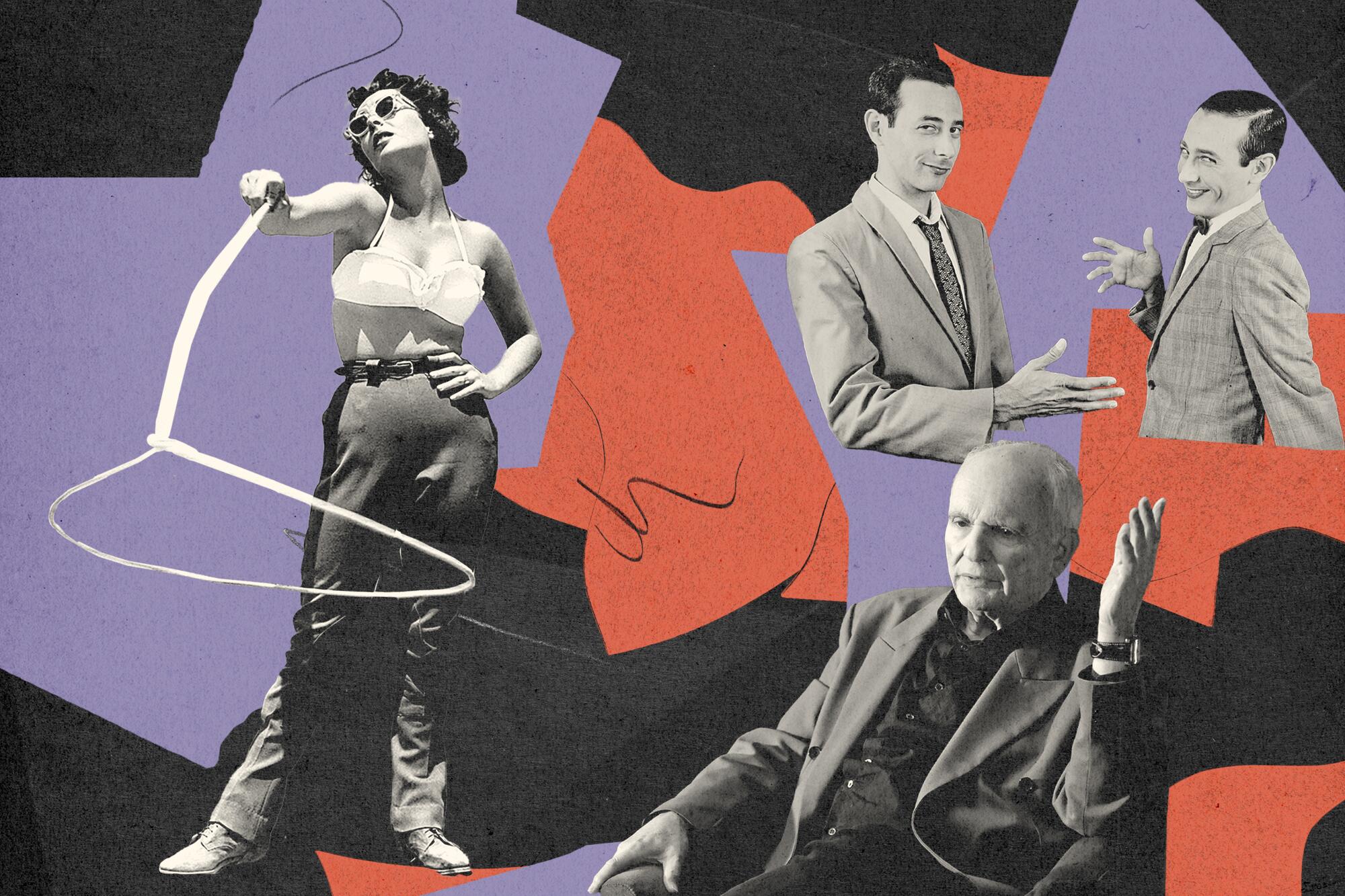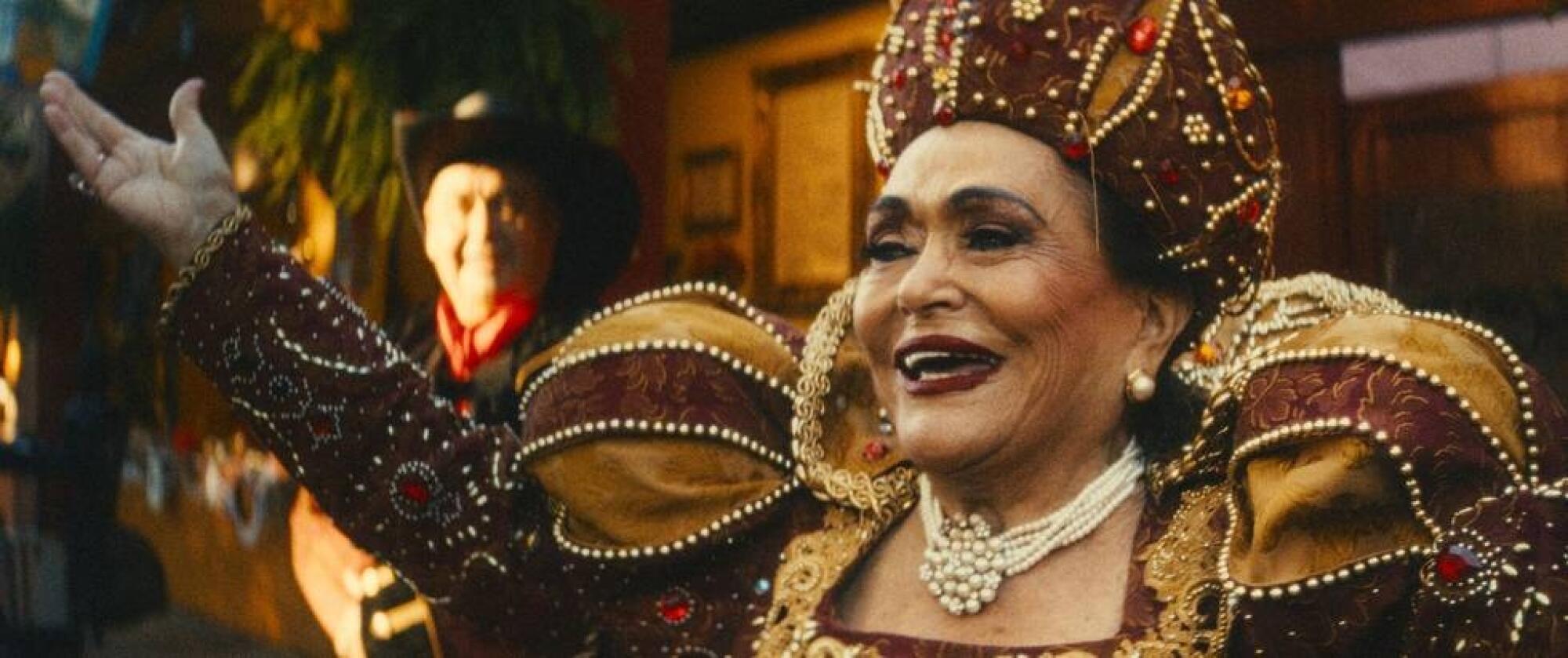
- Share via
When Oscar winner Alex Gibney sent HBO Documentary Films executives an early cut of his new movie, “Wise Guy: David Chase and the Sopranos,” he was blindsided by the feedback he received.
“God bless HBO, they said, ‘This is so good — make it longer.’ I rarely get that note.”
In the streaming world, documentaries have exploded, with newcomers like Netflix and Hulu chasing the next binge-worthy sensation. But HBO Documentary Films, which started in a nascent form in the late 1970s, remains a distinguished player, regarded as an especially prestigious and director-driven home for nonfiction fare. To understand why, it helps to talk to filmmakers who have recently worked with HBO — including Gibney, whose two-part documentary chronicles both Chase and his groundbreaking series across a sweeping canvas.

“I have a hard time making short docs,” jokes Gibney, whose 2023 MGM+ documentary “In Restless Dreams: The Music of Paul Simon” stretched 3½ hours. (“Wise Guy,” initially two hours, is now roughly that length.) “But [HBO] said, ‘You’ve got all this great stuff. You should lean into this and that.’”
Many directors echo this appreciation for the freedom HBO affords them to do what they want in a commercial space often dictated by algorithms and house styles.
For Matt Wolf, the man behind “Pee-wee as Himself,” about Paul Reubens and his alter ego Pee-wee Herman, it was important to craft a nuanced portrait. “We had a lot of autonomy and made the film very independently,” Wolf says, “until we were at the postproduction stage, when HBO became vital partners,” alluding to Reubens’ shocking 2023 death, which revealed that the performer had privately been battling cancer.
“Some partners might’ve said, ‘Paul’s passed away, this is newsworthy — we need a film in a few months,’” Wolf says. “But HBO was amazing in seeing that this is an evergreen story and that it wasn’t a rush. It was more about doing something with gravitas that could be profound and emotional. That takes time, and they gave me that time.”

Still, HBO offers its filmmakers plenty of notes — and has from the start. In 1979, Sheila Nevins was hired to run the channel’s burgeoning documentary programming, eventually becoming president of HBO Documentary Films. “Back then, HBO was a haven to make these really cool films,” recalls Oscar-nominated director Nanette Burstein, who first worked with Nevins as a co-writer and editor on 1995’s “Before You Go: A Daughter’s Diary.” “Sheila was the queen, and she was great at it. She gave pointed notes: ‘This is what I think should happen.’”
In 2019, Nevins left HBO for MTV Documentary Films, but Burstein, whose HBO documentary “Elizabeth Taylor: The Lost Tapes” recontextualizes the Hollywood legend through a never-before-heard interview, credits current heads Nancy Abraham and Lisa Heller, along with Senior Vice President Sara Rodriguez, with continuing Nevins’ championing of the director’s voice. That said, Burstein adds, the present regime is “very much respectful of a filmmaker and less — what’s the diplomatic term?” She chuckles. “Sheila had a very strong opinion. [Now] it’s more of a discussion.”

“Sheila Nevins deserves enormous credit, not only for documentaries at HBO but documentaries, period,” agrees Gibney. “She showed that they can be wildly entertaining, even when they’re not about celebrities. She had a sense that they have to be viscerally powerful — they can’t be like spinach.” But like Burstein, he acknowledges Nevins’ firm point of view: “I had some difficult conversations with her [about my films]. I would argue with her. Sometimes I accepted [her notes], sometimes I didn’t.”
Lance Oppenheim, director of “Ren Faire,” a juicy soap opera about a battle for control of the Texas Renaissance Festival, was grateful HBO doesn’t impose a mandate for how its movies look and feel. “That’s really admirable in this day and age when other buyers and streamers algorithmically make stuff,” he says. “You can see it in some of the things that feel like they’re being spoon-fed to us. They were always so open to the stylization [of “Ren Faire”] that maybe other places would be a little bit intimidated by — or would’ve asked me to tell the story a little straighter.”

No one expects a straightforward documentary from Eric Goode, director of Netflix’s 2020 hit “Tiger King.” His follow-up, “Chimp Crazy,” is similarly outlandish, following a former nurse, Tonia Haddix, who’s obsessed with collecting chimpanzees — even as PETA wisely tries to stop her. Goode’s unconventional techniques, including hiring a proxy director to get close to Haddix so she was unaware of Goode’s involvement, provoked criticism from documentary purists. But he argues that it’s all in the name of promoting animal rights.
“If you want to make a difference, you can’t just preach to the converted,” says Goode. “You have to make a big bang. So many [advocacy] films feel like you’re in school. You want to preach to people that don’t know the issues. And the only way to do that is to do things that are entertainment, that are going to make people scratch their head and say, ‘Wait a minute, I just watched this whole thing and there’s something disturbing about this.’”

When asked if HBO had qualms about his methods, Goode replies, “It may have come up but not with me directly.” Executives’ hands-off approach worked: “Chimp Crazy” was the most popular HBO documentary in years.
These five projects — a combination of celebrity portraits, true-crime thrillers and oddball sagas — suggest the breadth of HBO Documentary Films’ strategy for an art form that has blossomed on the small screen. Balancing compulsive watchability with a touch of class, the company is still trying to break the mold while simultaneously catering to the masses.
“It feels very fresh,” Gibney says of the company’s broad slate. “It feels like a film festival — as opposed to ‘Here comes the Predictable Content Channel.’”
More to Read
Sign up for The Envelope
Get exclusive awards season news, in-depth interviews and columnist Glenn Whipp’s must-read analysis straight to your inbox.
You may occasionally receive promotional content from the Los Angeles Times.








